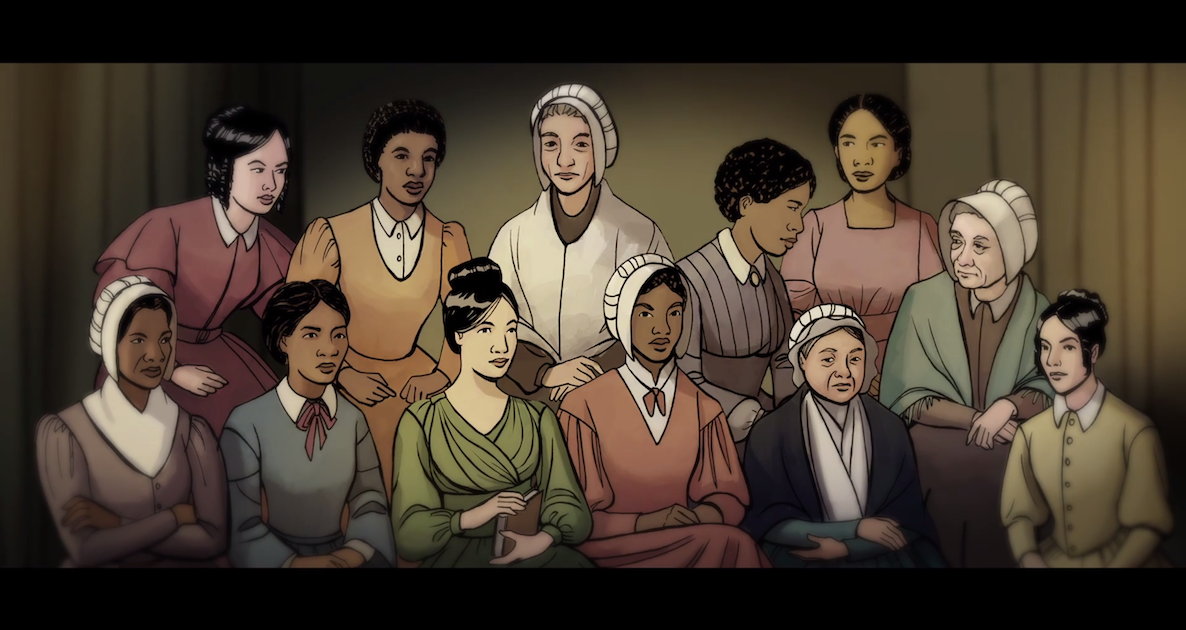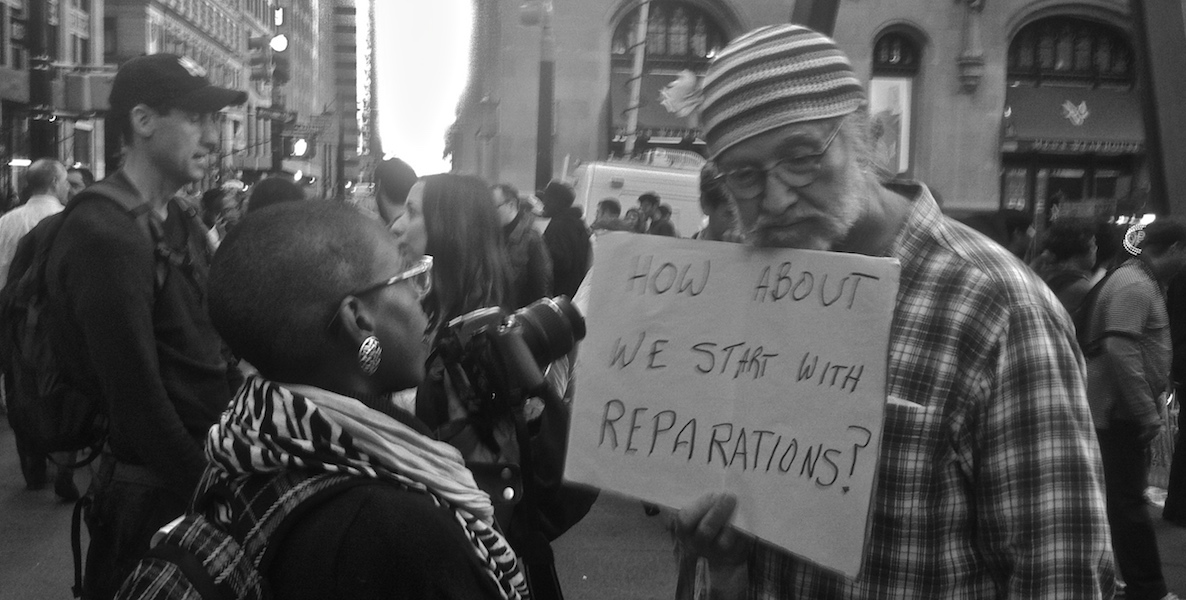Some bold-faced names dominated the highlights of yesterday’s public testimony before the U.S. House Judiciary Committee on H.R. 40, a bill that would authorize a national commission to study the issue of racial reconciliation. But alongside actor and activist Danny Glover and bestselling author Ta-Nehisi Coates was a Philadelphia native who has made the work of race relations her life’s work.
Katrina Browne produced and directed 2008’s Emmy-nominated Traces of the Trade: A Story From the Deep North, a PBS documentary about her discovery that her ancestors were the largest slave-trading family in U.S. history. Browne is a 1985 graduate from Springside School (now Springside Chestnut Hill Academy) who went on to found Tracing Center, a nonprofit meant to “create greater awareness of the nation’s complicity in slavery.”
“White people tend to imagine that black people are angry at us, but in my experience, black Americans don’t blame us for the deeds of bygone ancestors, but are— rightfully—angry that we don’t just drop the defensiveness or self-absorbed guilt, and sign up to work with them, shoulder to shoulder, to tackle the legacies still with us.”
Here’s Browne’s testimony, which began with her Philly roots:
Thank you Chairman Cohen and Representative Johnson for the opportunity to speak this morning.
I grew up in Philadelphia, six blocks from Independence Hall and the Liberty Bell. Patriotism runs deep in me. So it was devastating to learn from my grandmother, at 28, that our ancestors had been slave traders, and to discover that the DeWolfs were, in fact, the largest slave-trading family in U.S. history. That these were my Rhode Island ancestors, and that Rhode Island turns out to be the state that sent more ships to Africa than any other, required me to reorganize my brain.
The amnesia in my family matched the larger amnesia of the North—the self-serving myths of being always on the right side of history. I could no longer carry a sense of moral superiority relative to white southerners, nor a sense of innocence vis-a-vis black claims on the white conscience. I decided to initiate a family journey to retrace the triangle trade. Nine relatives joined me, and the documentary Traces of the Trade is the result.
What we learned, how we stumbled, how we grew during that journey led me to become a passionate believer in the importance of reckoning with the history and legacy of slavery. A believer in personal and family reckonings, institutional ones, and larger national reckoning. And with that, I believe in the need for “repair,” for reparative action, which can and should take many forms. I express whole-hearted support for H.R. 40. I’ve met countless people of all backgrounds who believe in this form of national effort.
I know there are many who strenuously object to the premise that we need this reckoning. The pushback I hear most often is “That’s your problem, given your ancestors, but it has nothing to do with me!”
It’s understandable that people distance themselves. I’ll focus on two key reasons: 1) most of us learned a distorted history of slavery, so as white Americans, most of us don’t realize our connections to it; and 2) there’s a natural instinct to avoid that which can bring feelings of shame—about our people, about the country that we love.
To address the first issue, here’s a quick run-down of historical facts I hadn’t been taught:
The North was deeply implicated: Slavery was legal in northern states for over 200 years;
Northerners up and down the economic spectrum made their livings in businesses tied to the slave trade and slavery;
Northern mills processed cotton harvested by enslaved people;
The Midwest and the West were implicated: They grew food to feed the South, where land was devoted to cash crops like cotton, harvested by the enslaved;
Consumers throughout the country were implicated in their everyday purchases of clothing, coffee, sugar, rice;
People who immigrated from Europe after slavery were implicated. I have Irish, French, and German immigrant ancestors who came to the U.S. in the 19th century, worked in factories, and struggled, but they were given access to the American Dream. Why were waves of immigrants flocking here? Because it was the Land of Opportunity. Because there were jobs. And why was the economy booming? Because it had been built largely on unpaid labor. Once here, European immigrants got to systematically leapfrog over black families, with devastating consequences up to the present.
So slavery built the nation. Slavery turned us into an economic powerhouse, due mostly to average “good folk” who participated in mundane ways and looked the other way.
Now for the second big reason for pushback against this bill—the emotions it stirs up. Here’s what I’d offer, speaking directly to my fellow white Americans, based on what I’ve heard from participants at hundreds of screenings of the film.
First: Fear not! Though it’s counter-intuitive, I’ve seen over and over again the liberating power of facing this painful past.
Second: White people tend to imagine that black people are angry at us, but in my experience, black Americans don’t blame us for the deeds of bygone ancestors, but are—rightfully—angry that we don’t just drop the defensiveness or self-absorbed guilt, and sign up to work with them, shoulder to shoulder, to tackle the legacies still with us.
Third: When we let go of defensiveness, or guilt, we can get to healthy and shared grief, which opens the door to sober, sacred, respectful, creative, collective conversations about how to make things right, as best we can.
There are scores of organizations at the local and national level that can attest to this already. They know—I know—that the process that a commission would help the country embark upon could be a transformative, positive and life-giving thing for the country as a whole. A beautiful thing. It is good for the soul of a person and of a nation to set things right. Thank you.
nationalcenter.org






